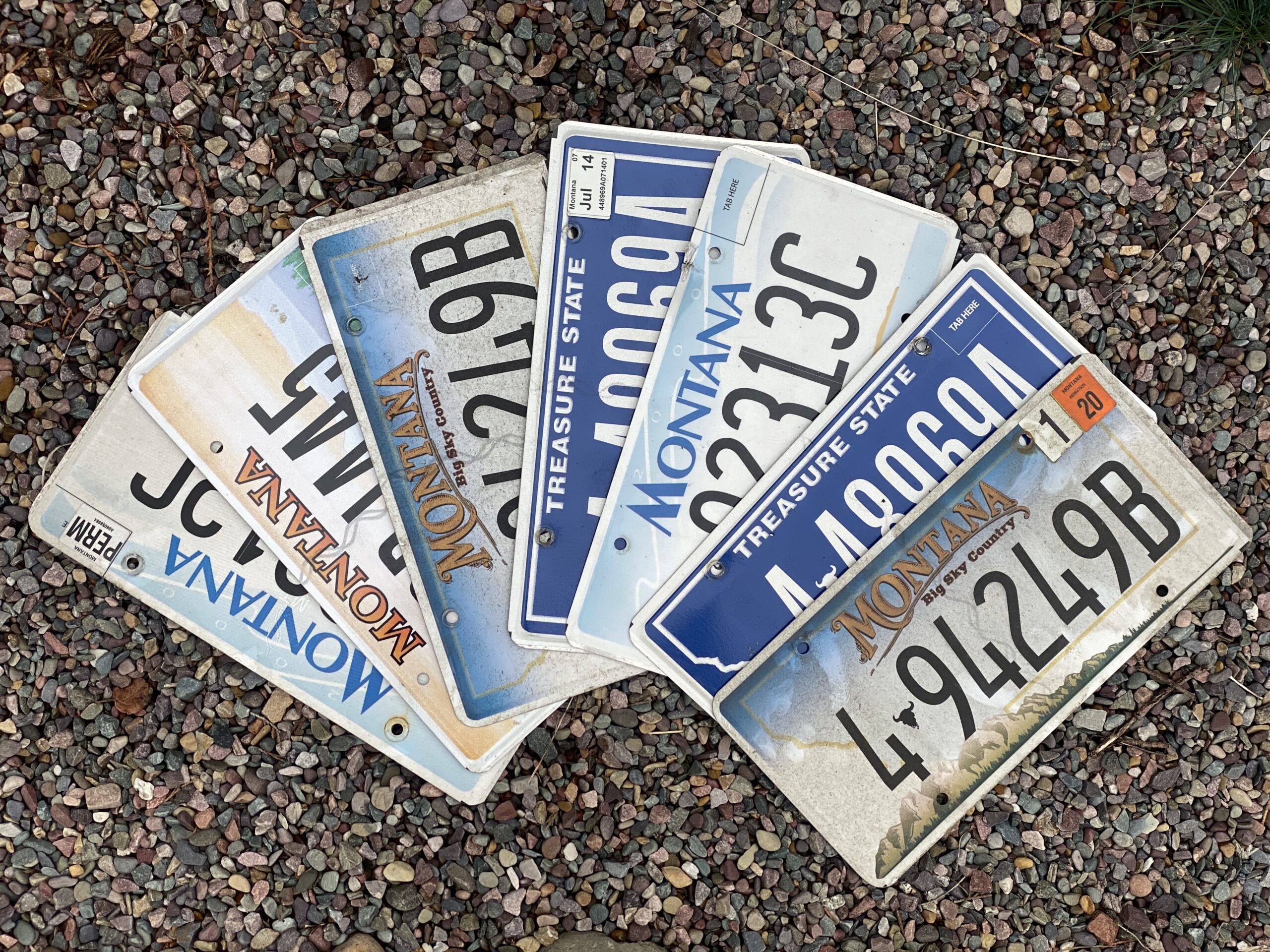There are 56 counties in Montana, and each one gets its own unique numerical prefix on the state’s license plates. Historically these were assigned by population—the more people who lived in a particular county, the lower the number. When Montana first started registering motor vehicles, the mining city of Butte was by far the largest in the Treasure State, so Silver Bow County received the coveted number 1.
The numbers cascade all the way to tiny Wibaux, Petroleum, and Lincoln Counties down in the 50s. When you notice a Montana plate with a high number, like Anaconda-Deer Lodge County’s 30, you’re seeing a relatively rare registration. Or are you? Because of what’s known now as “the Montana scheme”, the owner of that car may have never even stepped foot in Anaconda-Deer Lodge County.
The scheme works as follows. In Montana, business entities are allowed to purchase, title, and register vehicles. Since there is no restriction on who can establish an LLC or LLP in the state, this means via your corporation, you don’t need to be a resident of Montana to buy and register a car. Because there is no sales tax, state emissions inspection, or state safety inspection, buyers can dodge both taxes and inspections in their home state simply by forking over $35 and establishing a mailing address in Montana. This is easily done yourself or via a local agent in one of Montana’s counties if you’re far away. In fact, a cottage industry among law firms and independent agents has sprung up catering to out-of-state vehicle registrants.
The financial benefits are obvious if someone is purchasing a particularly expensive ride, like a rare vintage car, a high-end sports car, an RV, a boat, or an elaborate overland rig. Depending on the value of the vehicle, buyers can avoid paying tens of thousands of dollars on sales taxes alone, and because registration renewal fees are capped in Montana, the savings extend to getting that Montana plate as well. In fact, if your vehicle is over 11 years old, you can register it permanently—never having to pay for your tags again. No more visits to the emissions inspection station either, a boon for people with tuned or modified cars that won’t pass muster in their home state. For the moment, all of this is completely legal—at least from the Montana perspective.

However, most states have statutes that require permanent residents to title and register their vehicles in that state. In response to the Montana scheme, some states, like Florida and California, have strengthened those laws and are beginning to aggressively target Montana-plated vehicles and compare registrations with driver licenses and insurance policies. Many states’ attorneys general have filed complaints with the Montana Department of Justice, asking the agency to restrict out-of-state registrations, and some insurance companies are also becoming leary of covering Montana-registered vehicles owned by non-residents. Massachusetts has gone as far as combing through Montana state records to identify Bay Staters with illegally registered vehicles and prosecuting them for back taxes and missed inspections.
The Helena Air has reported that vehicle registration is the fourth largest source of tax revenue in Montana, so the state’s incentives to curtail the scheme are low, especially when many of those vehicles will never turn a wheel on Montana highways. But the burdens are beginning to mount at state and county revenue offices. Across the state, backlogs of up to six months for receiving a new vehicle title are not uncommon. Thin staff in small counties are often overwhelmed by hundreds of non-resident vehicle registrations. For a time, the Treasurer’s office in Missoula County had dedicated one staff member solely to processing this legally tenuous paperwork. Some counties with only a few thousand residents, like Richland or Phillips, don’t have county option taxes that cover processing costs or contribute to local tax funds, leaving both governments and residents high and dry. One firm sued Anaconda-Deer Lodge County because, in its view, the county wasn’t processing its out-of-state registrations quickly enough.
Non-resident vehicle registration continues to boom in Montana, though there were some whispers in the 2023 state legislature that a bill might have been introduced to close the scheme’s loophole. But nothing emerged, and it’s not hard to see why when millions of dollars continue to flow into state coffers from both vehicle and corporate registration fees. The lingering questions are how other states will combat the Montana scheme and how local Montana governments will continue to cope with the pressures of out-of-state registrations. The jury is still out.
Read more: Is Your Overland Vehicle Overweight? Here Is a Possible Solution
Our No Compromise Clause: We do not accept advertorial content or allow advertising to influence our coverage, and our contributors are guaranteed editorial independence. Overland International may earn a small commission from affiliate links included in this article. We appreciate your support.


